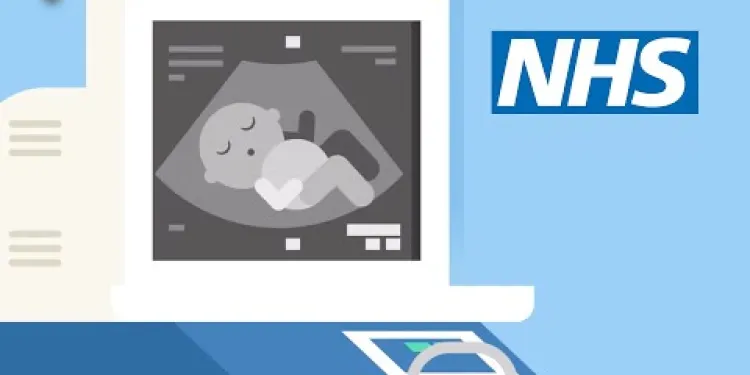
Find Help
More Items From Ergsy search
-

What is a pregnancy test?
Relevance: 100%
-

How does a pregnancy test work?
Relevance: 94%
-

How soon can a pregnancy test detect pregnancy?
Relevance: 91%
-

Are digital pregnancy tests more accurate than non-digital tests?
Relevance: 90%
-

When should I take a pregnancy test?
Relevance: 90%
-

Can stress affect a pregnancy test result?
Relevance: 89%
-

How accurate are home pregnancy tests?
Relevance: 89%
-

What are the different types of pregnancy tests?
Relevance: 88%
-

Can a pregnancy test expire?
Relevance: 86%
-

What if my pregnancy test is positive?
Relevance: 83%
-

Can drinking a lot of water affect pregnancy test results?
Relevance: 82%
-

How long should I wait to read the results of a pregnancy test?
Relevance: 81%
-

Can medications affect pregnancy test results?
Relevance: 79%
-

Can a pregnancy test detect a miscarriage?
Relevance: 77%
-

Do all pregnancy tests detect the same levels of hCG?
Relevance: 76%
-

What should I do if I get unclear results on a pregnancy test?
Relevance: 75%
-

What can cause a false positive pregnancy test?
Relevance: 74%
-

What if my pregnancy test is negative and I still think I'm pregnant?
Relevance: 73%
-

What does an evaporation line mean on a pregnancy test?
Relevance: 66%
-

Can home colorectal cancer tests replace a colonoscopy?
Relevance: 62%
-

Let's Talk Sexual Health - Home Self Testing Kits
Relevance: 59%
-

Let's Talk Sexual Health - Home Self Testing Kits
Relevance: 59%
-

Are there risks associated with home colorectal cancer tests?
Relevance: 57%
-

Do morning urine tests give more accurate results?
Relevance: 56%
-

Are home tests for colorectal cancer accurate?
Relevance: 56%
-

What should I do if my home test results are positive?
Relevance: 55%
-

Will insurance cover the cost of home colorectal cancer tests?
Relevance: 55%
-

Is a colonoscopy necessary after a positive home test?
Relevance: 54%
-

How accurate are app-based eye tests?
Relevance: 53%
-

How often should I perform a home colorectal cancer test?
Relevance: 52%
-

HIV and pregnancy | NHS
Relevance: 51%
-

Gestational Diabetes during pregnancy
Relevance: 45%
-

What should I do if I start bleeding during early pregnancy? | NHS
Relevance: 44%
-

Will the test affect my menstrual cycle?
Relevance: 43%
-
Do new variants affect COVID-19 testing?
Relevance: 43%
-

How accurate are the tests for predicting type 1 diabetes?
Relevance: 43%
-

Is cycling safe during pregnancy?
Relevance: 42%
-

Screening tests for you and your baby | NHS
Relevance: 41%
-

How long does it take to get results from a home colorectal cancer test?
Relevance: 41%
-

Sexual Health - HIV Testing
Relevance: 41%
Understanding Home Pregnancy Tests
Home pregnancy tests are a popular method for women to determine whether they are pregnant. Available in most pharmacies and supermarkets across the UK, these tests are designed to provide a quick and easy indication of pregnancy by detecting the presence of the hormone human chorionic gonadotropin (hCG) in urine. hCG is produced by cells that form the placenta and is typically present in the body shortly after a fertilized egg attaches to the uterine lining.
Accuracy of Home Pregnancy Tests
Home pregnancy tests are generally considered highly accurate when used correctly. Most tests advertise accuracy rates above 99% when taken after a missed period. However, several factors can influence the accuracy of these tests, including timing, user error, and the sensitivity of the test itself. The timing of the test is crucial as testing too early can result in a false negative. This often happens because there might not be enough hCG in the urine to be detected by the test. For the most reliable result, it is recommended to wait until the first day of the missed period, or roughly two weeks after conception, before taking the test.
Factors Affecting Accuracy
Aside from the timing, user error can also impact the accuracy of home pregnancy tests. It is important to follow the instructions carefully, as incorrect usage can lead to unreliable results. Reading the result within the recommended time frame is essential, as reading it too early or too late can give misleading results. The sensitivity of the test, which refers to the amount of hCG it requires to show a positive result, can vary between different brands and types of tests. More sensitive tests can detect lower levels of hCG, thus potentially identifying pregnancy earlier. However, these tests may also be more expensive.
Recommendations for Best Results
To ensure the most accurate results from a home pregnancy test, consider the following tips. First, use the first morning urine, as it usually contains the highest concentration of hCG. Ensure that the test is not expired, as the chemical reagents used in the test can degrade over time, affecting accuracy. If the test is negative but menstruation has not commenced, it is advisable to wait a few days and retest or consult a healthcare professional for further advice. For those who receive a positive result, confirming it with a healthcare provider is a prudent step to initiate prenatal care promptly.
Conclusion
In conclusion, while home pregnancy tests can be highly reliable, achieving maximum accuracy depends on using the test correctly and at the appropriate time. Given the wide availability and ease of use of these tests in the UK, they remain a popular choice for those seeking to confirm pregnancy from the comfort of their homes.
Understanding Home Pregnancy Tests
Home pregnancy tests help women find out if they are pregnant. You can buy them at pharmacies and supermarkets in the UK. These tests are simple and quick. They work by looking for a special hormone called hCG in urine. This hormone gets made when a baby starts to grow inside the womb.
Accuracy of Home Pregnancy Tests
Home pregnancy tests are very accurate if used the right way. Most can be 99% correct if taken after a missed period. But, some things can make them less accurate. These include taking the test too soon, using it wrong, and the kind of test. If you test too early, the test might say "not pregnant" even if you are. It's best to wait until your period is late or about two weeks after you think you got pregnant.
Factors Affecting Accuracy
How you use the test can change the result. You must follow the instructions exactly. Checking the result too early or too late can give wrong answers. Different tests work differently. Some can find very small amounts of hCG. These are called sensitive tests and can show results sooner but might cost more money.
Recommendations for Best Results
To get the best result from a home pregnancy test, try these tips. Use your first morning urine, as it has more hCG. Check the date on the test to make sure it is not old. If the test says "not pregnant" but your period hasn't started, try again a few days later or ask a doctor. If the test says "pregnant", see a doctor to start taking care of your health and the baby's health early.
Conclusion
Home pregnancy tests are a good way to find out if you are pregnant. But, for the most correct answer, use the test the right way and at the right time. Because these tests are easy to get and use, they are a popular choice for many people in the UK.
Frequently Asked Questions
Useful Links
This website offers general information and is not a substitute for professional advice.
Always seek guidance from qualified professionals.
If you have any medical concerns or need urgent help, contact a healthcare professional or emergency services immediately.
Some of this content was generated with AI assistance. We’ve done our best to keep it accurate, helpful, and human-friendly.
- Ergsy carfully checks the information in the videos we provide here.
- Videos shown by Youtube after a video has completed, have NOT been reviewed by ERGSY.
- To view, click the arrow in centre of video.
- Most of the videos you find here will have subtitles and/or closed captions available.
- You may need to turn these on, and choose your preferred language.
- Go to the video you'd like to watch.
- If closed captions (CC) are available, settings will be visible on the bottom right of the video player.
- To turn on Captions, click settings .
- To turn off Captions, click settings again.
More Items From Ergsy search
-

What is a pregnancy test?
Relevance: 100%
-

How does a pregnancy test work?
Relevance: 94%
-

How soon can a pregnancy test detect pregnancy?
Relevance: 91%
-

Are digital pregnancy tests more accurate than non-digital tests?
Relevance: 90%
-

When should I take a pregnancy test?
Relevance: 90%
-

Can stress affect a pregnancy test result?
Relevance: 89%
-

How accurate are home pregnancy tests?
Relevance: 89%
-

What are the different types of pregnancy tests?
Relevance: 88%
-

Can a pregnancy test expire?
Relevance: 86%
-

What if my pregnancy test is positive?
Relevance: 83%
-

Can drinking a lot of water affect pregnancy test results?
Relevance: 82%
-

How long should I wait to read the results of a pregnancy test?
Relevance: 81%
-

Can medications affect pregnancy test results?
Relevance: 79%
-

Can a pregnancy test detect a miscarriage?
Relevance: 77%
-

Do all pregnancy tests detect the same levels of hCG?
Relevance: 76%
-

What should I do if I get unclear results on a pregnancy test?
Relevance: 75%
-

What can cause a false positive pregnancy test?
Relevance: 74%
-

What if my pregnancy test is negative and I still think I'm pregnant?
Relevance: 73%
-

What does an evaporation line mean on a pregnancy test?
Relevance: 66%
-

Can home colorectal cancer tests replace a colonoscopy?
Relevance: 62%
-

Let's Talk Sexual Health - Home Self Testing Kits
Relevance: 59%
-

Let's Talk Sexual Health - Home Self Testing Kits
Relevance: 59%
-

Are there risks associated with home colorectal cancer tests?
Relevance: 57%
-

Do morning urine tests give more accurate results?
Relevance: 56%
-

Are home tests for colorectal cancer accurate?
Relevance: 56%
-

What should I do if my home test results are positive?
Relevance: 55%
-

Will insurance cover the cost of home colorectal cancer tests?
Relevance: 55%
-

Is a colonoscopy necessary after a positive home test?
Relevance: 54%
-

How accurate are app-based eye tests?
Relevance: 53%
-

How often should I perform a home colorectal cancer test?
Relevance: 52%
-

HIV and pregnancy | NHS
Relevance: 51%
-

Gestational Diabetes during pregnancy
Relevance: 45%
-

What should I do if I start bleeding during early pregnancy? | NHS
Relevance: 44%
-

Will the test affect my menstrual cycle?
Relevance: 43%
-
Do new variants affect COVID-19 testing?
Relevance: 43%
-

How accurate are the tests for predicting type 1 diabetes?
Relevance: 43%
-

Is cycling safe during pregnancy?
Relevance: 42%
-

Screening tests for you and your baby | NHS
Relevance: 41%
-

How long does it take to get results from a home colorectal cancer test?
Relevance: 41%
-

Sexual Health - HIV Testing
Relevance: 41%


